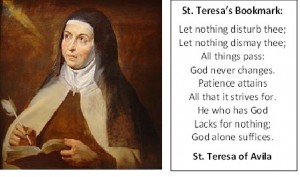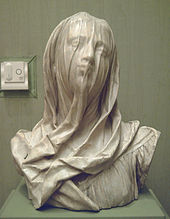FAITH:
Posted by SociusOct 20
Fr. Jonathan is away on retreat and has seen this blog. He writes:
“Reading the scriptures there seem to be different stages in the journey of faith. At some point, like Mary Magdalene in the Garden of the Resurrection, we actually meet Jesus, and so our faith is not just a ‘blind’ belief, but rather is personal knowledge of God and his love. To reach this stage, requires the good-will to be open to God, his love and mercy. Peter and John ran to the tomb, after Mary Magdalene told them news, the stone had gone. Peter went in to the tomb, and it does not say he believed; perhaps, he was too self-preoccupied, after his betrayal of Jesus. John went in second; he did believe, perhaps because he remained with Jesus, and his mother, at the Cross, and Jesus had said to him from the Cross: ‘Behold your mother’. He was at that stage more open. Later on they all saw the risen Jesus. We, ourselves, meet him through the different circumstances of life. Yet our faith, even if it is ‘knowledge’, always needs nurturing, and may even disappear if we do not practice it. Pope Benedict, aware that faith is a challenge in our culture, has called for a year dedicated to faith, from October 2012 to November 2013. Let us ask the Lord, as this blog says, to strengthen our weak faith”.
Fr. Jonathan.
What a perfectly lovely gift it is to have faith – ‘faith that can move mountains’. Well, it may be that not all of us are so strongly gifted, but, faith enough to believe in the existence of an Omnipotent and Supreme Being – God our Father – who created heaven and earth, all things visible and invisible, who made us in his own image and likeness, to serve him in this life and to be happy with him for ever in the next – well that is quite enough to be going on with, I think.
A week ago, Father Jonathan included in his blog concerning Martin Kevill, the subject’s own line:
“My only hope is that if there is a God living up there in Heaven –
He’ll understand that at least I tried.”
I think a line like that – built on a life of ‘trying’ is enough to get one through ‘St. Peter’s Gates’, but Martin was, at the same time, being honest and expressing some of the doubts he had felt in his life. It is not always so easy to have unshakeable faith, all of one’s life, and I am sure that many of the great saints felt invaded by doubts from time to time, especially when they were undergoing some very severe testing periods. But, look into the eyes of an innocent child and see there the faith he, or she has, knowing that they are safe in your hands, safe and loved so that no harm will come to them. That look cannot be bought – it is so precious – but it mirrors, in some respects, the faith some of us can have in God and his goodness. Observe the faith that Father Ambrose had when nearing his death, in June of this year. He had known for some months that he was dying, but this he was prepared to face, with great love and cheerfulness, secure in the faith that he had loved God all his life and had always tried to do God’s will, to the best of his ability.
I suppose it is not possible for all of us to have perfect faith, but faith is a gift from God, and the imperfections may to a large extent be due to the way in which we receive and handle that gift. How wonderful it is then to see something approaching perfect faith in the words of St. Teresa of Avila:
 |
So, what is faith? The poet, William Wordsworth, must have been pondering the same question when, in 1850, he wrote a short poem entitled, “On the Banks of a Rocky Stream”. His words are quite the opposite of those used by St. Teresa. They speak of ‘eddies’ and ‘whirlpools’ not to mention ‘disquietude’, and then, lo and behold, he goes to God for help:
On the Banks of a Rocky Stream
(Published 1850)
Behold an emblem of our human mind
Crowded with thoughts that need a settled home,
Yet, like to eddying balls of foam
Within this whirlpool, they each other chase
Round and round, and neither find
An outlet nor a resting-place!
Stranger, if such disquietude be thine,
Fall on thy knees and sue for help divine.
William Wordsworth
Faith, in the ordinary sense, is all to do with trust and belief in someone, or something, to the effect that that placement of belief will prove to be true and well-founded, now, or at some time in the future. It is very closely connected with that other virtue, called ‘hope’, because, in placing one’s faith and trust in that someone, or something, one very much ‘hopes’ that the trust has not been misplaced, as a misplacement would, inevitably, lead to a betrayal of that trust. In entrusting one’s faith, there is no requirement for proof, in the first instance; indeed, it is most often the case that, it is in the absence of proof, that faith in that someone, or something, and in the expected outcome, is called forward. Faith is most often called for, and resorted to, in terms of religious beliefs. In this sense, faith is almost invariably taken to mean trust (belief) in the existence of a Supreme Being, or Deity – a transcendent reality – though it is also applied, very often, to a set of religious teachings – and to articles which form the very basic principles of a person’s religious make-up. In this religious sense, faith is far beyond that range of normal physical activities in which proof can be used – in a realm that is off-limits to material measurement and the rigors of all scientific enquiry.
In all the monotheistic religions that I can bring to mind, the most important common factor concerns faith in the existence of one Supreme Being – an all-powerful deity, we Christians call God – though there are alternatives allied to other religions.
Leaving aside other faiths, faith, in Christianity, is based in, and on, the words of the Bible, and the work and teachings of Jesus, himself. It is a supernatural gift that enables us to believe, first, that there is One God, the Father of us all, an all-powerful and loving Creator, who made all things in heaven and on earth, all things visible and invisible. It tells us that God made man in his own image and likeness, to love him and serve him in our lives upon earth, and then to be happy with him forever in heaven, after we have died. The gift of faith has its origin in God, and is dynamic in its essence. This means that those who receive it – and accept its reality – begin to understand the mystery of God and his grace – then go on and seek to learn more, to become obedient to him and his will, thus growing in his grace and favour. Secondly, faith leads us to believe in the ‘fall’ of mankind because of our first parents’ Original Sin, and then God’s love and redemption of the human race, through the gift of his Son, Jesus, who was born on earth as a man, lived, suffered grievously and died in expiation of Adam’s sin. Jesus, the ‘Second Adam’ rose ‘from the dead’, and in so doing, he gives us our ‘resurrection’ to new life, and saves us from the perils of an everlasting enmity with God.
 |
Faith, an ‘allegory’ by the Spanish sculptor Luis S. Carmona (1752 – 53)
(The veil symbolizes the impossibility of knowing sacred evidence directly)
None of this is capable of proof by physical means, and, without faith, one would be right to dismiss it ‘out of hand’, or otherwise be deemed a ‘nutter’ – and rightly so! To illustrate, I can picture in my mind an alien from Planet Sentaur, landing on earth, then to be told about God – his power, and place, way above everything alive and dead – then about Jesus and his saving power. I can see the alien, sans trust, sans faith, sans all credibility, beginning to ‘double up’ with laughter at our total naivety. I can see him turn, and walk back to his space-craft, muttering to himself: “Come on; we want no more of this kind of rubbish. If they’re all like this, here on this planet, then let’s be off. Let’s get back to some sanity on Sentaur, (or wherever!).
However, on the positive side, some philosophers have defended the gift, and use, of ‘Faith’, claiming that life is ‘well nigh’ impossible without it. Most of these people have held that life, as we know it, is so full of evidence gaps, all of them requiring some leap of faith in order to carry on, in any normal way, that such beliefs, without proof, should, and must, be accepted. William James, an American philosopher, (1842 – 1910), held that any belief that assists in an individual’s functionality is a good thing, per se, and should not be dismissed, even if what was required to be proved cannot be proven. So much for ‘Quad erat demonstrandum’, (that which was required to be proved)!
For my own part, I do not pretend to be a philosopher (except, perhaps, one of the ‘home-spun’ variety), and I am certainly not from Sentaur (or so my faith would have me believe), and, therefore, according to the definitions of some, they might well call me a ‘nutter’. Be that as it may, the following few lines of my own blank verse, may help to illustrate my deeply-held feelings on this subject, and, at the same time, serve to underline all that has gone before:
“… … The answer lies in our lack of Faith, Hope,
And wavering Trust in the Word of God,
For we are human, after all, and doubt
Magnifies our imperfections. The time
Is now, my friend, to mend our ways, …. believe
With all that strength of mind, and heart, and soul,
In God, His Word and promise of support,
Even unto the end of time, on earth,
And into Paradise.”
Socius
In e-mailing the blog, ‘Word Press’ tends to distort the original formatting of the document. Readers may wish to visit the website www.stmarysblog.co.uk to read it in its original format.

No comments